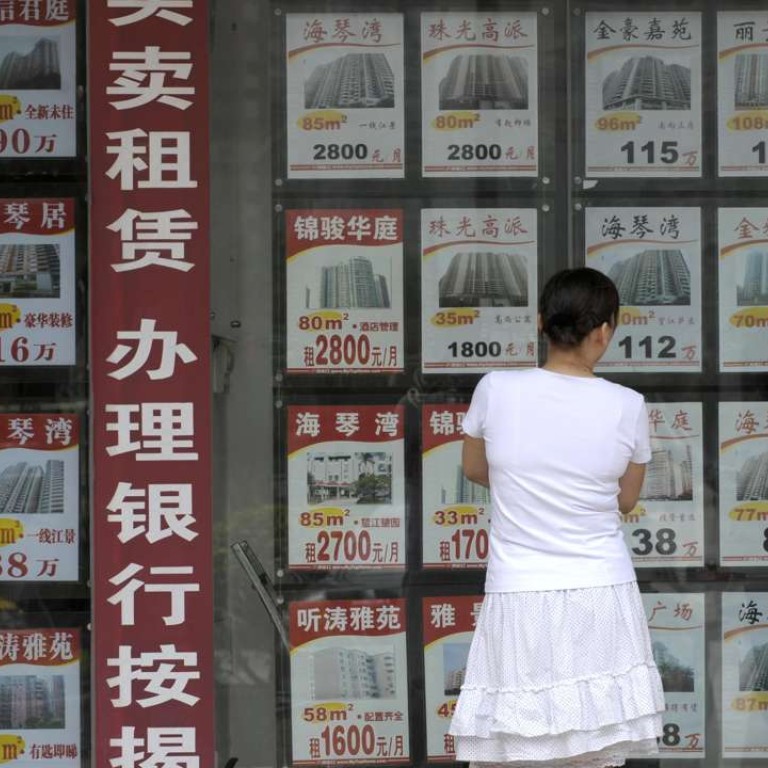
Update | No peak in sight: Guangzhou home prices to keep rising in 2017, analysts say
It’s almost impossible to walk through the streets of Guangzhou and not notice the megacity’s red-hot property market.
China’s third-largest city, with 13 million residents, is choking with tower blocks, comprising apartment complexes, malls, offices and billboards for these buildings.
“It’s non-stop construction here,” said Cindy Chen, sales manager at real estate consulting service Maxview Realty.
Property prices in China’s major cities have risen by as much as 25 per cent this year, prompting the country’s wealthiest real estate man Wang Jianlin to warn that the country is on the verge of witnessing the economy’s “biggest bubble in history.”
To tame surging prices, and avoid housing affordability from spilling over to becoming a social issue or from contributing to inflation, the Chinese government imposed policies in September and October in the country’s biggest cities to deter speculation.
In Guangzhou, not much has changed, though city authorities vowed to enforce existing regulations, such as limiting residents to two properties per household, while non-residents are capped at one home per household.
“Our real estate regulations have never really been relaxed, so none of that has really changed,” said Sam Lai, senior directory of advisory and transaction services at CBRE. “This proves our housing market has yet to reach that unsustainable level.”
In the third quarter, Guangzhou’s average sales price for new housing rose through 20,000 yuan per square metre (HK$2,076 per sq ft) for the first time, rising by 15.9 per cent from last year.
In September, the monthly sales volume exceeded 1 million sq metres, indicating that “purchase sentiment remained strong,” Colliers said.
“There’s still so much demand,” Maxview Realty’s Chen said. “I don’t even know where these people come from.”
Despite the strong demand, Guangzhou’s price increase has lagged behind those in Shenzhen, Lai said.
The trend for Guangzhou’s mass housing market, similar to other cities, will move away from the city centre to outlying areas, said Jex Ng, managing director of South China for Jones Lang LaSalle.
In these suburbs, the majority of buyers are non-local residents, Chan said, who not subject to restrictions.
“There are a considerable number of people whose spouses work in Guangzhou,” he said. “Many of them moved their whole family to the suburbs and bought a house here.”
This sustained demand has even been absorbed by neighbouring cities such as Foshan, where prices are more affordable and are an easy commute to Guangzhou.
In addition, recent rules allow Foshan’s non-local buyers to obtain a local hukou (户口) or residential permit, so that their children can enrol in local schools.
“Now Foshan’s housing prices have also been increasing rapidly, especially those houses closest to Guangzhou,” Chan said.
While prices for Guanzhou properties are rising across the board, they are doing so more aggressively in the city’s central districts of Tianhe (天河), Yuexiu (越秀), Liwan (荔灣), and Haizhu (海珠), according to Chan.
“A considerable number of people who have the spending power will still try to buy in central areas,” he said.

